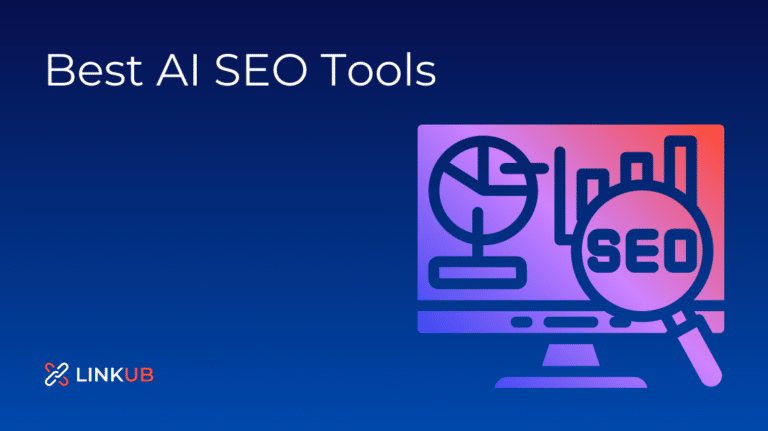100 Best Keyword Research Tools in 2024
Are you tired of wasting time on ineffective keywords that don’t drive traffic?
You’re not alone! Studies show that 90% of pages get zero organic traffic from Google. That’s where keyword research comes in!
In this listicle, we share the best keyword research tools to help you uncover high-impact keywords, optimize your content, and skyrocket your site’s visibility. Let’s get started and unlock the secrets to your SEO success!
Top Keyword Research Tools
Do you have a keyword research tool?
Methodology
The ranking of the keyword research tools is determined by considering several factors, including the number of citations and user reviews they have received.
Most Used Keyword Research Software
1.
Ubersuggest is a simple yet powerful keyword research tool that helps you uncover high-potential keywords to drive organic traffic and enhance online visibility. Key benefits include:
- Keyword suggestions: Generate relevant keyword ideas based on user queries and search trends.
- Keyword metrics: Access crucial information like search volume, competition, and cost-per-click (CPC) data.
- Content ideas: Discover popular content in your niche to inspire your own high-performing articles or blog posts.
- Competitor analysis: Monitor competitors’ top-ranking keywords and SEO strategies to stay ahead in your industry.

2.
Wordtracker is a versatile keyword research tool that helps you discover high-impact keywords to drive targeted traffic and improve your search rankings. Key benefits include:
- Comprehensive keyword suggestions: Generate relevant keyword ideas to expand your SEO strategy.
- Valuable metrics: Analyze search volume, competition, and keyword effectiveness index (KEI) data for informed decision-making.
- Competitor insights: Investigate competitors’ keyword strategies to identify gaps and outperform them.
- Customizable reports: Export keyword data and create tailored reports to guide your content and SEO planning.

3.
Keyword Tool is a reliable and efficient keyword research tool that helps you find targeted, high-impact keywords to elevate your search engine rankings. Key benefits include:
- Rich keyword suggestions: Uncover a wide range of relevant keyword ideas based on actual user search queries.
- Long-tail keywords: Discover low-competition, long-tail keywords with high conversion potential.
- Platform-specific research: Conduct keyword research across platforms like Google, YouTube, and Amazon.
- Easy-to-use interface: Get started quickly and easily navigate thanks to a user-friendly interface.

4.
Serpstat is a robust keyword research tool that provides actionable insights to optimize your search rankings and drive targeted traffic. Key benefits include:
- Extensive keyword database: Unveil many relevant keyword ideas for your SEO strategy.
- Comprehensive metrics: Analyze search volume, competition, and keyword difficulty data for effective decision-making.
- Competitor analysis: Monitor competitors’ top keywords and SEO strategies to stay ahead in your niche.
- Multi-platform support: Conduct keyword research across Google, Yandex, and other search engines for a holistic approach.

Searchmetrics is a comprehensive keyword research tool that delivers powerful insights to help you identify high-potential keywords and elevate your search rankings. Key benefits include:
- Exhaustive keyword suggestions: Generate many keyword ideas for expanding your SEO strategy.
- In-depth metrics: Access crucial information like search volume, competition, and search intent data.
- Competitor insights: Analyze competitors’ keyword usage and performance to outperform them in your niche.
- Customizable dashboards: Visualize keyword data and track your SEO progress with tailored, easy-to-understand dashboards.

Conclusion
There you have it – the best keyword research tools to transform your SEO game!
With these powerful tools, you can identify high-value keywords, target the right audience, and rank higher in search engine results.
It’s time to step up your SEO strategy, say goodbye to ineffective keywords, and embrace the path to organic traffic success.
Choose the right tool for your needs, and watch your website rise to new heights!
FAQs
Keyword research tools are software applications that help you identify relevant and high-performing keywords for your website’s content. These tools are essential for SEO because they enable you to optimize your content for search engines and attract more organic traffic.
Some of the most popular and effective keyword research tools include Google Keyword Planner, Ahrefs’ Keywords Explorer, Semrush, Moz Keyword Explorer, Ubersuggest, and KWFinder.
Yes, there are free keyword research tools available. Google Keyword Planner, Ubersuggest, and Keyword Surfer are some examples of free tools. However, paid tools like Ahrefs’ Keywords Explorer and Semrush typically offer more advanced features and in-depth data.
Keyword research tools provide data on keyword search volume, competition, cost per click (CPC), and other relevant metrics. By analyzing this data, you can identify high-performing keywords that are relevant to your content and have the potential to drive more organic traffic.
When choosing a keyword research tool, factors include your budget, business size, level of expertise required to use the tool, features offered, and the depth and accuracy of the data provided.
Important metrics to consider during keyword research include search volume, keyword difficulty, CPC, competition, and click-through rate (CTR).
Yes, using multiple keyword research tools can provide a more comprehensive view of the keyword landscape and help you identify a broader range of potential keywords. Combining data from different tools can lead to more informed keyword selection and strategy.
Regular keyword research is essential to stay up-to-date with market trends and search engine algorithm updates. Ideally, you should conduct keyword research whenever you create new content or review and update your existing content strategy.
Based on the data provided by keyword research tools, you can select high-performing and relevant keywords to incorporate into your content. Ensure that your chosen keywords are used naturally and appropriately within the content, including titles, meta descriptions, headings, and body text.
Yes, keyword research tools can benefit businesses of all sizes, including small businesses and startups. Free tools like Google Keyword Planner and Ubersuggest are great starting points for businesses with limited budgets, while more advanced tools can be considered as the business grows.




